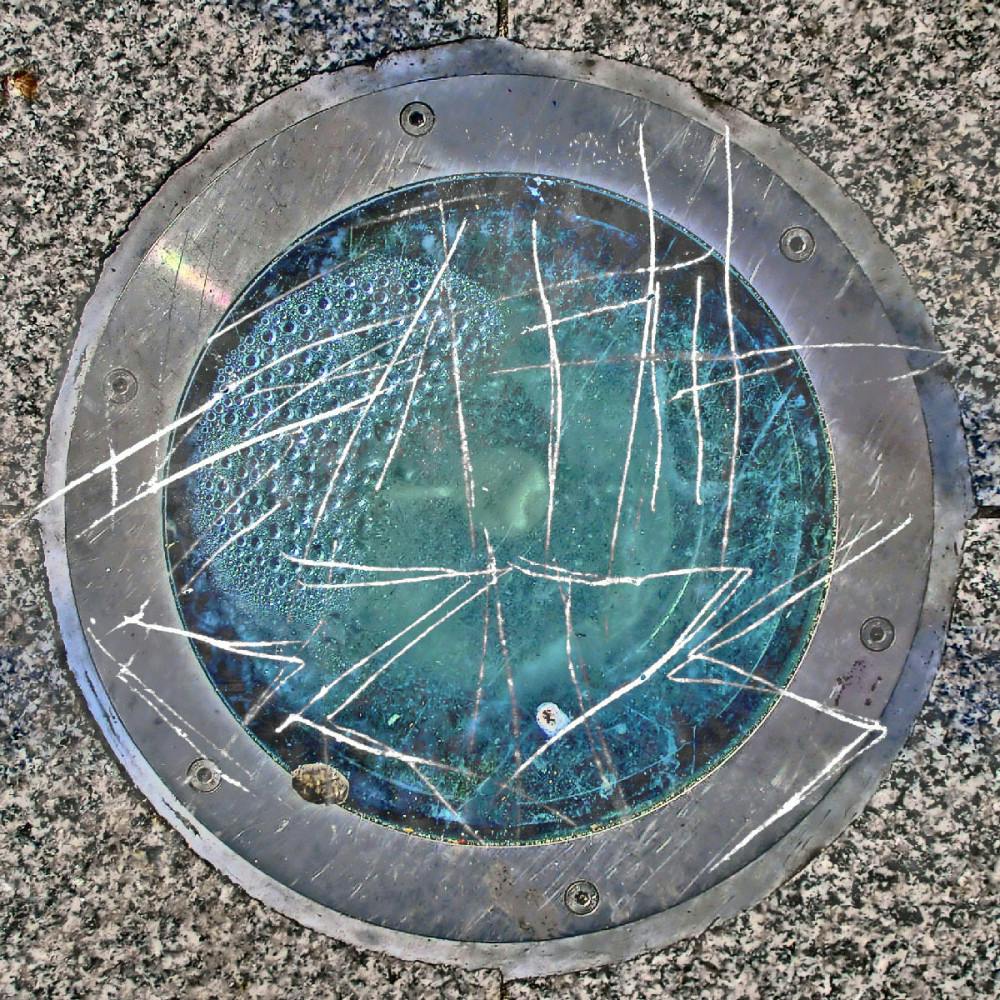Released 3/31 via Harvest Records
Grade: 6/7
Last June, Sacramento noise-rap trio Death Grips released Niggas on the Moon, the first disc of their then-unreleased and presumably final double album, The Powers That B. They assured fans that disc 2, the cryptically titled Jenny Death, would follow shortly. Then they cancelled all tour dates, broke up, revealed that Robert Pattinson (yes, that Robert Pattinson) had played guitar on 2013’s Government Plates, released an instrumental soundtrack for last month’s fashion week, and re-united. For artists allegedly repulsed by fame and fortune – they refuse to give interviews and regularly release their records for free - it’s impressive how much attention their antics can gather.
Now finally released in its entirety, The Powers That B proves that Death Grips weren’t trolling their fans these past few months. Despite missed deadlines and cancelled tour dates, Death Grips have managed to craft an impressive pair of records that stand among the band’s most ambitious and diverse work.
Niggas on the Moon builds its eight songs around samples snatched from Icelandic Avant-pop icon Bjork. Her presence – in the form of finely chopped, heavily processed voice clips - gives the set a nimble versatility. On “Billy Not Really,” the band chips and tips her voice into eerie pan flutes. Instrumental “Have a Sad Cum,” feeds her and frontman Stefan Burnett’s voices through a meat grinder of Pro Tools effects, snipping them into unintelligible coos and snarls that weave in and out of a latticework of polyrhythms and warped synths courtesy of drummer Zach Hill (one half of ex math-rock/shred-meister duo Hella) and producer/synth-lord Andy Morin (colloquially known as Flatlander).
The disc also features some of the most aggressive songs Death Grips have recorded yet. Opener “Up My Sleeves” finds Burnett half mumbling, half chanting the titular phrase before launching headlong into the track with the declaration, “I’ll take my life like I kept it.” “Fuck Me Out” features one of the band’s densest rhythms, and though Burnett gives a remarkably restrained performance, his lyrics loses little of their sheer intimidation with the volume down; if anything, Burnett’s subdued cadence only underscores the desperation and suicidal intensity of his MC Ride character.
Jenny Death eschews the rhythmic complexity and electronic precision of Niggas on the Moon for brute force drums and guitar. The sound, at least in terms of sheer aggression and lyrical nihilism, hearkens back to the band’s molten 2011 mixtape Exmilitary. “I Break Mirrors with My Face in the United States” lives up to its name, riding a tidal wave of piercing synths and Nine Inch Nails drum machines that shatter the clinical calm (relatively speaking) of Niggas on the Moon’s final tracks. “Inanimate Sensation” builds a bona fide hook around revving electronics and tribal beats that have more in common with power electronics provocateurs Whitehouse than anything in the realm of hip-hop. “PSS PSS” masters the emerging art of the airhorn.
Starting with the titular cut, the final tracks of the record build in rap-rock intensity, climaxing with the previously released “On GP.” In the context of a single, the track proved instantly memorable, if a little confounding (the music video in particular, featuring a street magician vaping and subsequently goofing off for six minutes, is just plain stupid). Placed at the end of the album, however, it’s absolutely arresting. The four power-chords worth of guitar pummels with a primitive anger reminiscent of early West Coast hardcore and Hill’s drums pound like a classic rock drummer with sledgehammers for arms. It’s Burnett, though, that launches the track into the stratosphere.
Gone are the ridiculous one-liners and the “fuck, kill, steal shit” mentality of Burnett’s incendiary MC Ride character, and though Burnett still barks his lyrics like an apocalyptic drill sergeant, behind the vitriol is a profound weariness. Lines like “I’d be a liar if I sat here claiming I’d exit in a minute/But I can’t say I wouldn’t have my limits” place Burnett closer to post-punk martyr Ian Curtis than a thoroughly #noided Henry Rollins. “On GP” marks the point where, after raging against the violence, paranoia and oppression of the 21st century for four albums, Burnett realizes his anxiety comes as much from within as it does from without. Instrumental album closer “Death Grips 2.0” underscores the revelation, ending the record with a sense of loss and unease.
As is somewhat telling from the one-disc-at-a-time release strategy for The Powers That B, the album is not a cohesive collection of songs; Death Grips have instead structured its two discs as counterpoints rather than supplements. The effect mostly works and serves to underline Death Grips’ versatility, with Niggas on the Moon encapsulating the abstract and rhythmically dense style first heard on the messy but occasionally brilliant Government Plates, and Jenny Death perfecting the raw, abrasive, and scorched-earth stylings of Exmilitary. Arguably the only element underrepresented here is Death Grips pop side; listeners looking for a cyberpunk rave-up akin to 2012’s major label debut The Money Store ought to look elsewhere (a few bangers can be salvaged from 2014’s messy Fashion Week instrumental soundtrack).
Death Grips may make more records. Last week they announced a world tour, and a few days ago a cryptic Facebook update in response to a fan inquiry regarding future records hinted “we might make some more.” Even if Death Grips never makes good on that, The Powers That B, an album equal parts angry, confused, confusing, messy, and even touching, would make a fitting conclusion for a band that, in retrospect, is miraculous for simply lasting this long. Despite raging against the machine these last five years, Death Grips have enjoyed (and maybe even continue to enjoy) a remarkably successful and prolific anti-career. Maybe they’ve got the Powers That Be on their side.





